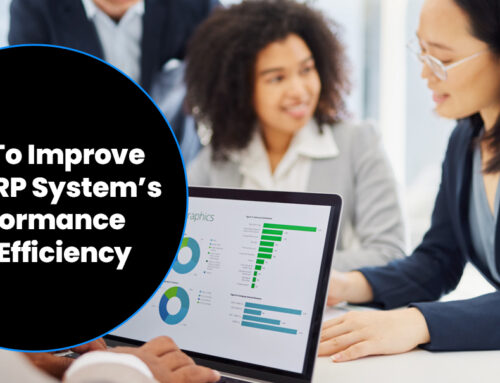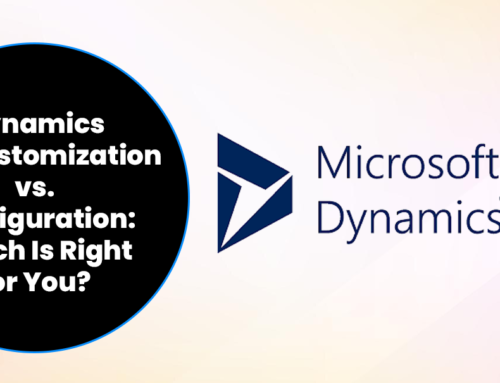
Cloud enterprise resource management (ERP) solutions offer a high degree of agility, scalability, and flexibility for organizations of all sizes and across all business sectors. This next-generation variety of enterprise software delivers greater flexibility when compared to on-premise ERP solutions too.
Migrating from an on-premise ERP platform to a cloud solution requires guidance due to the complexity of these systems. Cloud ERP consultants can guide the process, ensuring a smooth transition and deployment. But how do you prepare financially to hire a cloud ERP consultant? There are several considerations.
Cloud ERP vs Traditional On-Premise ERP Platforms
Traditional on-premise enterprise resource planning platforms are highly secure yet costly to maintain. You have the cost of the servers, data center maintenance, and on-site staff who are required to maintain the platform infrastructure. There is also the cost of periodic hardware upgrades. Poor scalability limits growth too.
A cloud-based ERP interface has a much lower overhead due to the virtual cloud infrastructure, with its pay-as-you-go system. This frees an organization to spend more on an ERP consultant and other resources. Cloud ERP is highly scalable and like many SaaS solutions, it is more affordable because you pay for the resources you use; nothing more and nothing less.
The higher cost of on-premise ERP systems means that most will find that it is beneficial to migrate to a cloud-based ERP platform as soon as possible. This will free up funds that can be put toward a consultant’s fees.
Closing down an on-premise data center will allow a company to reallocate funds that were originally earmarked for maintenance, hardware upgrades, and data center staff, among other things. It may even be possible to sell data center hardware that is no longer required, netting a bit of additional money and freeing up much-needed office space.
A cloud ERP consultant can be instrumental in guiding the migration process too. This means they are a valuable asset as a company seeks to shut down data centers and establish their data on a new cloud-based interface. This is one area where consulting can be extremely beneficial because a smooth on-premise-to-cloud transition is essential.
Ongoing Financial Considerations When Hiring a Cloud ERP Consultant
Hiring a cloud ERP consultant is best thought of as a recurring expense. As mentioned above, an enterprise software consultant is going to play a significant role in cases where you are migrating from an on-premise data center to a cloud-based interface. Configurations and integrations can be very complex which demands a specialist to guide the process.
Beyond this, an ERP consultant will need to be on hand to assist with deployment and user support. This means that companies should budget for recurring expenses. A consultant can assist with some of the following tasks.
- Teaching users how to use the various ERP features;
- Recommending modifications and upgrades;
- Advising on ERP configuration changes;
- Spearheading integrations and security-related changes;
- Offering guidance to company leaders who seek to leverage reports and analytics; and
- Instructing users on how to use the platform more effectively as part of their workflow.
An ERP platform is at the core of a company’s operations which means the interface plays a very important and centralized role. But what happens when things unexpectedly go askew? You will need a capable and experienced ERP consultant who is available to advise when things go pear-shaped. It is prudent to expect the unexpected by anticipating emergency consultancy fees. These fees may be a bit higher than the consultant’s typical fees if assistance is rendered after business hours.
In-person consultations may carry a higher hourly rate too, so this is another variable that should be kept in mind as you plan your budget.
It can be useful to request information on your cloud ERP consultant’s fee structure to help aid in the financial planning process. It is impossible to accurately predict your future needs, especially in terms of consulting. But by looking at the past, you may be able to identify cases when a consultant would have been helpful. By referencing past events, you can predict future requirements to some degree, thereby aiding in the budget allocation process.
Considering the Different Types of ERP Consultants
As you plan financially to hire a cloud ERP consultant, it is important to remember that rates can vary according to specialty.
Cloud ERP consultants often maintain status as a specialist in processes such as migration, integrations, deployment, maintenance, training, and so on.
Additionally, many companies produce enterprise resource planning software and this has spurred the development of specialists in SAP, Oracle, and a variety of other ERP platforms. There is also the type of ERP system — on-premise or cloud-based — giving rise to different specialties in this area as well.
Consider that a consultant specializing in on-premise SAP ERP may have different rates when compared to an Oracle cloud ERP consultant. For this reason, it is prudent to verify that the consultant in question specializes in the cloud and the type of platform (SAP, Oracle, etc.) that you are utilizing.
Costs for Keeping an ERP Consultant On-Call
Some organizations may have continual needs that make it practical to hire a consultant who can render services on an on-call basis. In these cases, consultants typically charge a flat rate whereby they can make themselves available to assist whenever the need arises.
This subscription-type fee structure can work well for many organizations since it is a stable, recurring charge that lends itself to easy financial planning.
A cloud ERP consultant can bring a great deal of value to your business, but good financial planning is essential to success. At Cox-Little, we work with some of the top cloud ERP professionals in the industry. We are well-positioned to help you select the right ERP consultant for your needs — someone with expertise that will align with your cloud-based ERP platform. Contact the team at Cox-Little today to discuss how our enterprise resource planning experts can help set you down the path toward success.





